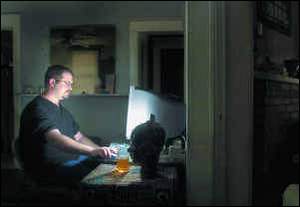"Forget Clausewitz: Nations now fight clans driven by pride, vengeance and martial religiosity."
In today's WSJ, Robert Kaplan reviews the new book "Insurgents, Terrorists, and Militias." I will be reading this book.
Just one quibble, though.
Well, of course things could have been better, but, it's not necessarily so. I'll have to read the book for context, I suppose. But for now I want to challenge the notion that our military is somehow terminally crippled by it's western viewpoint. Take, for instance, the cable news Psy Op campaign of Shock and Awe. "Where's the shock and awe?" asked every one after we opened the war, not with carpet bombing, but surgical air strikes. Saddam, believing we were going to destroy his command and control networks, cut himself off, went into a hole, and dispersed his units to the winds to act independantly, all of which we rolled up in 21 days. If that wasn't by design, then it was still a happy mistake, with credit due to the US military for destroying the enemy's forces while keeping Iraq's fragile infrastructure largely intact for the reconstruction.
Hell, the Pentagon has whole departments of strategists whose sole job is to think outside the box for stategies that will give us the edge. This American Life on NPR did a show on the subject in 2001 which was quite good. (You can listen online here.)
Just one quibble, though.
As for Iraq, the authors write: "Things could have turned out differently... The traditional Iraqi way of war, and how Iraq fits into the larger global jihad, could have been deduced by U.S. planners" for the sake of a better military outcome. Saddam expanded his military machine by tribalizing it. Rather than eliminate Sunni clan networks, he incorporated them into his bureaucratic system of control. Thus if his army ever disintegrated, the result would be a congeries of Bedouin-like raiding parties, each with a tight social network, reprimitivized for the urban jungle.
Well, of course things could have been better, but, it's not necessarily so. I'll have to read the book for context, I suppose. But for now I want to challenge the notion that our military is somehow terminally crippled by it's western viewpoint. Take, for instance, the cable news Psy Op campaign of Shock and Awe. "Where's the shock and awe?" asked every one after we opened the war, not with carpet bombing, but surgical air strikes. Saddam, believing we were going to destroy his command and control networks, cut himself off, went into a hole, and dispersed his units to the winds to act independantly, all of which we rolled up in 21 days. If that wasn't by design, then it was still a happy mistake, with credit due to the US military for destroying the enemy's forces while keeping Iraq's fragile infrastructure largely intact for the reconstruction.
Hell, the Pentagon has whole departments of strategists whose sole job is to think outside the box for stategies that will give us the edge. This American Life on NPR did a show on the subject in 2001 which was quite good. (You can listen online here.)

